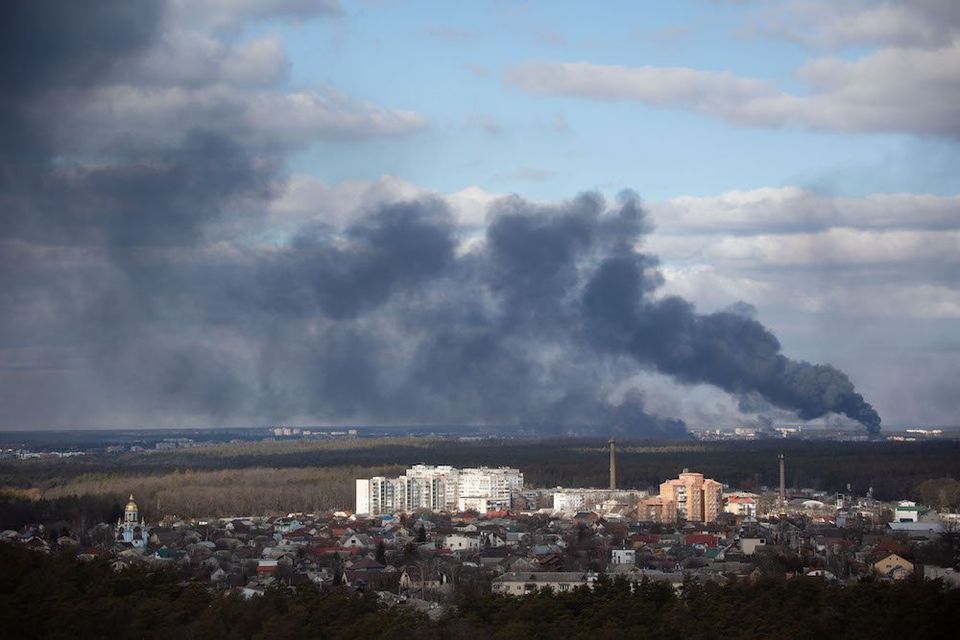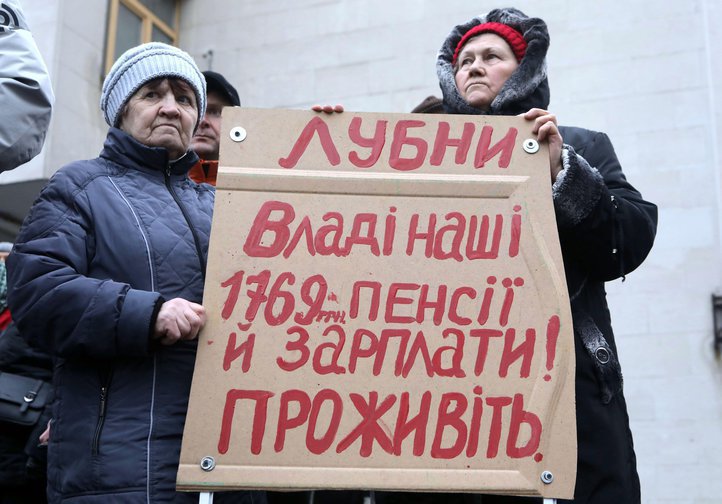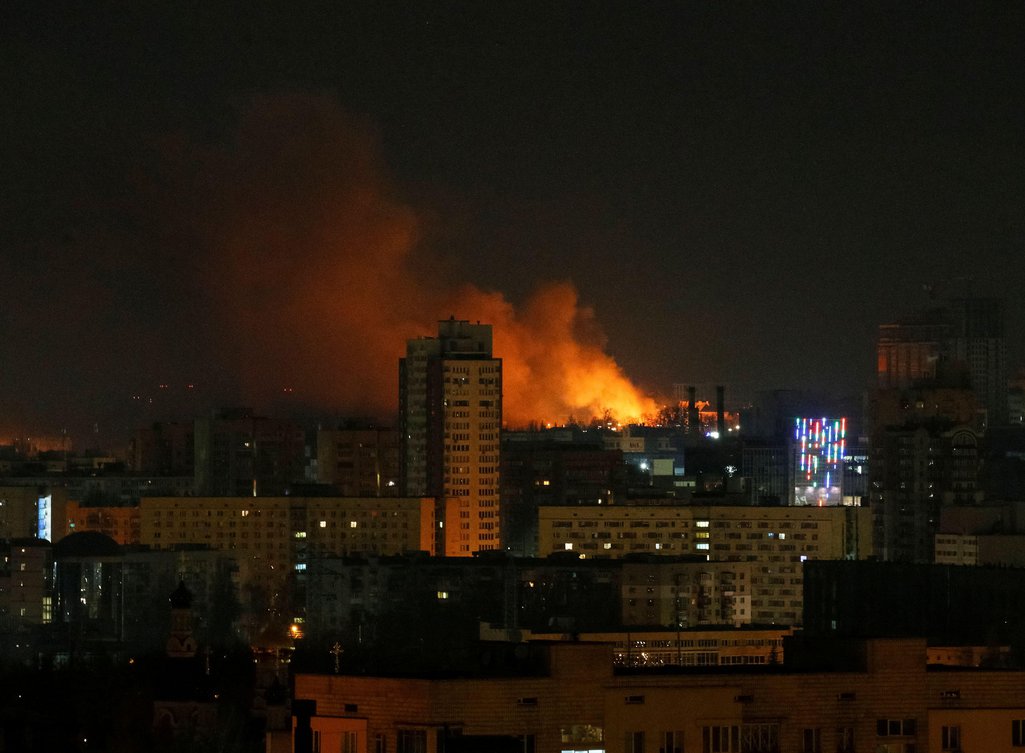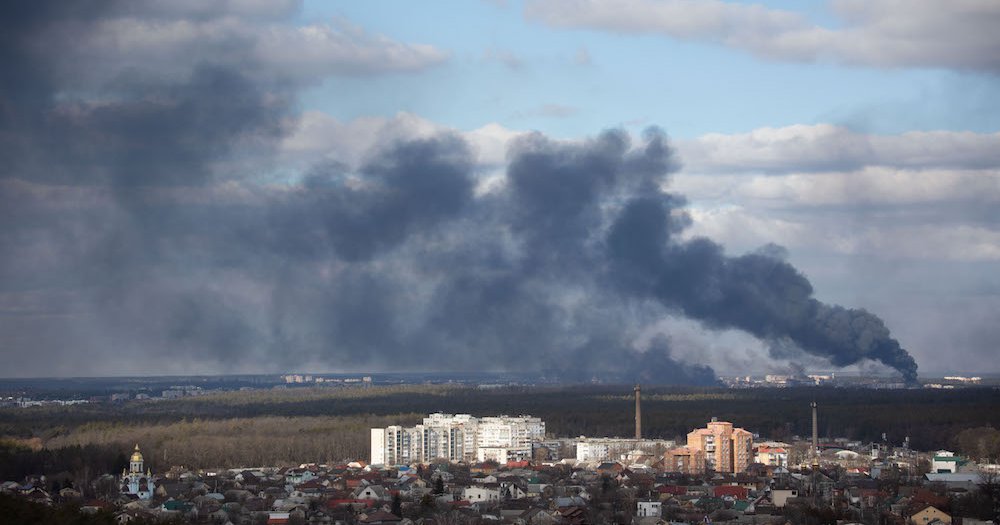Why Ukraine needs foreign debt cancellation now

Source: Open Democracy
Author: Elliot Dolan-Evans
As the country fights a bloody war with Russia, international financial institutions must show solidarity by wiping Ukraine’s crippling debts
Barely a week has passed since Russia invaded Ukraine, but the economic, human and ecological costs to the country are already immense. This comes on top of the accumulated costs to Ukraine of over eight years of war, ongoing economic crises and the Covid-19 pandemic.
A day after the invasion began, Ukraine asked the International Monetary Fund (IMF) for emergency financing. That day, the World Bank also stated that it was preparing “immediate support” to Ukraine’s government. Prior to the beginning of the invasion, the European Commission had already pledged €1.2bn to the besieged nation.
Yet financing from the IMF, European Commission and World Bank could come with weighty strings attached, at a time when the country is engulfed in a violent, bloody war. For example, the European Commission’s support, announced on 21 February, stated that Ukraine would need to implement “policy measures” as part of the agreement.
This is not a free lunch – these loans will need to be paid back, with interest.
Big loans and neoliberal restructuring
Since the outbreak of the war in Donbas in 2014, international financial institutions such as the IMF and World Bank have engaged deeply in Ukraine. Since 2014, the World Bank has lent US$8.4bn, the IMF has loaned US$17bn, and the European Commission has advanced at least €13bn to the country.
These loans have been contingent on radical neoliberal restructuring throughout the Ukrainian economy as conflict raged in the background, with demands for reforms in pensions, the energy sector, agriculture, state employment, privatisation and political governance.
Both the IMF and World Bank, as gatekeepers to international finance, are particularly important in instituting debt forgiveness for Ukraine, and must act now before the crisis deepens even further
The loans have created enormous levels of debt for Ukraine. The country is drowning in external debt of over US$129bn (78.8% of GDP), and is expected to repay US$14bn of it in 2022. A significant proportion of this debt is owed to the international financial institutions.
As the humanitarian crisis in Ukraine deepens and the scale of the destruction wrought by Russian bombs becomes apparent, the international financial institutions must forgive Ukraine’s debt. Ukrainians have already begun to demand that the crippling levels of debt be wiped, as a material, significant, and necessary sign of real solidarity from the international community.
The World Bank and IMF must act now
Both the IMF and World Bank, as gatekeepers to international finance, are particularly important in instituting debt forgiveness for Ukraine, and must act now before the crisis deepens even further, to permit the necessary flow of debt-free and unencumbered resources for the struggles, survival and social protection of Ukrainians.
Four days before Russia’s invasion, with over 100,000 Russian troops on Ukraine’s doorstep, the World Bank was readying a US$350m loan to Ukraine, with the proviso that more energy reform was needed. This was despite the fact that the international financial institutions had already forced through the substantial privatisation and marketisation of Ukrainian energy assets, leading to an increase in household gas prices by approximately 650% since the beginning of the war in Donbas in 2014.

Indeed, throughout the bloody conflict in Ukraine’s east, the Ukrainian government has repaid the World Bank approximately US$2bn (including US$664m in interest) of their loans, a substantial sum of money for a country with three million people already in humanitarian need prior to the Russian invasion. Ending Ukraine’s debt to the World Bank would give it a substantial breathing space, allowing it to attempt to end poverty and ensure shared prosperity – the World Bank’s ostensible mission – rather than focusing its limited funds on debt service.
Crucially, the World Bank is also a gatekeeper to concessional lending, which is permitted to countries classified as ‘poor’ or in a ‘fragile and conflict-affected situation’ (FCS). The World Bank does not, and has never, classified Ukraine under this category. This is despite Ukraine comfortably meeting its criteria for inclusion as a country with ‘medium-intensity conflict’ for the last eight years, and being noted consistently as ‘in conflict’ in World Bank publications and country-specific programming documents.
Ukraine is excluded from the World Bank’s FCS classification for two main reasons. First, it is technically disqualified because it does not have an international peacekeeping mission and is defined as a ‘lower middle-income’ economy. Second, and more tellingly, if Ukraine was classified as ‘in conflict’ by the World Bank, it could either access more flexible financing or receive concessional lending and eligibility for debt waivers as an International Development Association (IDA) country.
The question is, following the Russian invasion, will the World Bank finally classify Ukraine properly as ‘in conflict’, and permit the embattled country to access conditional lending and waive its debt?

Exploring all options, but forgiving no debt
As the Russian invasion began, IMF managing director Kristalina Georgieva said that the Fund was exploring “all options” to aid Ukraine. At the same time, however, Ukraine’s projected debt payments to the IMF for 2022 remain at approximately US$2.3bn, and are expected to stay at this level until at least 2025. Even prior to the latest escalation in the conflict, alarm bells had been ringing at the IMF about Ukraine’s ability to service its growing debt and implement the conditions demanded in IMF loans.
Further, the IMF has historically pressured Ukraine to improve its macroeconomic indicators with little concern about the impact on ordinary Ukrainians. The previous loan agreement the IMF instituted with Ukraine, in June 2021, consisted of US$5bn. It followed a fiscal consolidation by Ukraine that was, as glowingly noted by the IMF, “achieved mainly through a reduction in the real value of wages and social benefits”. Indeed, there have been consistent concerns from international and local NGOs that IMF-instituted economic reforms attached to loans have severely affected living standards and social services, with a particularly detrimental impact on women and marginalised groups.
Unconfirmed reports from a recent closed-door meeting of the IMF board revealed that board members are very concerned about Ukraine’s ability to service its debt following the Russian invasion. Although the IMF has voiced its support for the Ukrainian people, these words will ultimately ring hollow if the Fund cannot muster the courage to materially support the suffering of Ukrainians at war, over and above a concern for Ukraine’s debt obligations.
This can only happen if the IMF both allows Ukraine to access funds without any conditions, so that urgently needed social services and humanitarian assistance can be instituted immediately and in the future, and removes the debt-guillotine that hangs constantly over its neck, even as Russia is at its throat.
Ukraine’s debt to the international financial institutions must be cancelled immediately.



